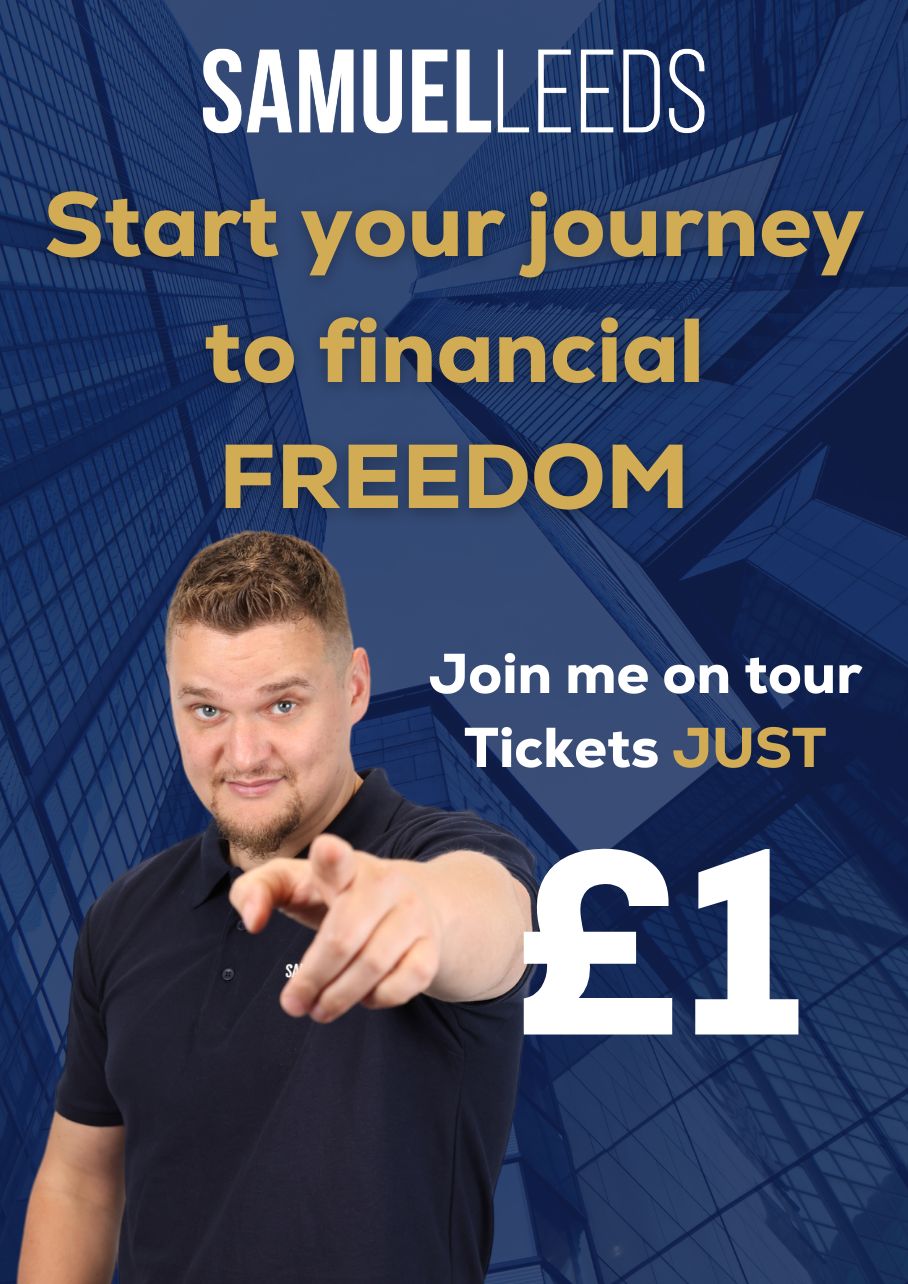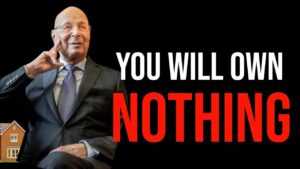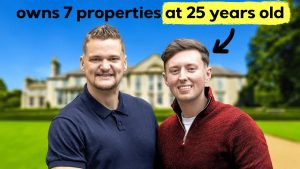I was really excited to be invited to speak to Trisha Goddard on TalkRadio about my time at school, and how I was able to succeed through the help of my teacher, Mrs Haysmith. Not only was I able to become successful, but I was able to come back and teach her how I was making money through property. Now she is financially free and able to live off what I taught her!
Here is our conversation:
Trisha Goddard: Now there was this one pupil, Samuel Leeds and I'll get him to describe what kind of a kid he was. But he has found, now he's an adult, he's found an extraordinary way of thanking his teacher. So, Samuel Leeds joins me now; Samuel, thank you for your time.
Samuel Leeds: It's an absolute pleasure Trish, thanks for having me on the show!
Trisha Goddard: Samuel, so what were you like as a kid at school?
Samuel Leeds: Well as a kid I had a very short attention span. I do suffer with ADHD and also dyslexia, and I wasn't very good as a kid at all. I went to a very small school and I sat on a special needs desk, and I didn't really think there was much hope for me in life at all. But there was one teacher called Mrs Haysmith that was one of the only teachers that was always really nice to me, and she seemed to see something that the others didn’t.
Trisha Goddard: Samuel, I'm guessing you were a difficult kid. You know, from an adult's point of view?
Samuel Leeds: Yeah, definitely. I was often getting detention and even suspended. At one time I got suspended from the school for a week; not for anything really malicious or really bad; it was just because I was so bored in school. I used to get into trouble for flicking glue. I just did not like school at all.
Trisha Goddard: How was she [Mrs Haysmith] different to you? Tell me about some of the things she did or said that made her stand out from the rest.
Samuel Leeds: Well for a start she seemed to actually like me. You kind of know if someone doesn't like you and kids aren't stupid. If they just talk about you in the staff room and roll their eyes you almost live up to that. With Mrs Haysmith I used to always be really good in her class because I thought, ‘well she likes me and I don't want her to stop liking me’; so, I think for a start it was the fact that she just seemed to like me.
Also, she used to say to me, ‘oh you're going to be so successful when you're a man, I'm so excited about your future’. I thought at the time it was really weird, but I almost felt like I wanted to live up to the belief that she had in me (even though I didn't have that belief in myself at the time).
Trisha Goddard: Yeah, so I'm going to fast forward. Was she right?
Samuel Leeds: Well, I mean success is very subjective, but I've been very successful in business and I've gone on to become a multi-millionaire; I've got a very large property portfolio; I restore buildings; I build houses from scratch; I've got a castle that I own, a grade two listed castle; and I'm happily married with three absolutely beautiful children, so I think she probably was right!
Trisha Goddard: Whoa, whoa, whoa, whoa, so how did you get from that kid who couldn't sit still, who was really behind the eight ball, as you said had dyslexia and ADHD – because this is a powerful message for any other kid who's been labelled with those things or been told they have conditions. How did you get from that to where you are now?
Samuel Leeds: So, when I was at school I believed that there were two options. You could either go down the academic route and go to university or the second option was you could do something practical with your hands, maybe a builder. I aspired to be a dustbin man because I thought, ‘I'll be good at that, I am hard working, and I'm fit and able and I like being outside’.
What I didn't realize was there was a third route which was entrepreneurship. I think a lot of schools don't teach kids about money, about finance, about being a business owner, and when I left school at 16 I read a book by a guy called Robert Kiyosaki, who now I actually know; but it was Rich Dad, Poor Dad and that book was all about money, and it was about passive income and real estate.
I just thought, ‘You know what, I failed in school, I could become a dustbin man or a plumber or a plasterer, but why don't I just pursue this?’ I started going to business events and learning about property and investment and I just put my absolute all into it. Over time, I became a letting agent; I became an estate agent; I bought my first house as a teenager; and over the years just started accumulating properties. Then when they went up in value, I refinanced them and bought more and pulled investors in and I just got really good at it.
I think that it's really important for me now to teach kids that actually it is possible to be a business owner, it is possible to be an investor. So part of my mission now is that I've got a charity and we're in the process of planning with the Ugandan government to build schools. I've said I'll pay for the buildings as long as you let me have an input in the school curriculum.
Trisha Goddard: Wow, wow! So, you say this started with Mrs Haysmith having belief in you and telling you that you could be successful. So, you know that kind of corny thing on the first day of school you take an apple for teacher they used to say or, here in America, they give their teachers presents to thank them, quite rightfully, for the work they've done. What present did you give Mrs Haysmith?
Samuel Leeds: So what I didn't realize was that teachers weren't paid very well and I'd never realized that some of my teachers were actually on the bread line. Mrs Haysmith was someone that I always loved and when I left school I had a fondness for her. When I started learning about money and I set up a business, I stayed in touch with her. Seeing how her life was so different from my life, I was buying nice houses, going on nice holidays and she couldn't afford to do that a lot. I thought that it wasn't really fair that she was so poor and was struggling to keep up with a mortgage. She lost her job as a teacher, she was made redundant. She rang me up and said how disappointed she was with her pension and she asked me if I could help her.
I ended up spending a lot of time with her. It was like we changed roles and I became Mrs Haysmith's teacher in business and I helped her get on the investment ladder. Now she owns a
string of properties and she gets paid to be a full-time property investor. She's now a really good friend of mine; she's come out to Africa with me to help with my charity works in Zambia and Uganda, and we're really good friends and she's now financially independent. It's just the best that I can repay her.
Trisha Goddard: Oh Samuel, gosh did we need to hear that story today. I love that, I love how it comes full circle. I so passionately believe we funnel too many children into university, in higher education. I think there's a lot of them who don't need to be there, who buckle under the stress and have all sorts of mental health situations because basically that's not where their heart lies, but they think it's that or as you said, being a dustbin man or something else.
So we're going to take a quick break but afterwards, I think what is really powerful is what message you would have to young people who are kind of at that crossroads at the moment thinking where to go from now.
[Break]
Trisha Goddard: I'm talking to Samuel Leeds who repaid his teacher, the one teacher that had belief in him. When he was a kid he had ADHD and dyslexia and, you know, he was a little bit disruptive, I suppose you could label him, but one teacher really told him ‘you can go far’ and indeed he did. He's a millionaire property owner and he thanked his teacher by helping her create a portfolio where she is now not just a friend, but she owns her own properties and earns her own living.
Samuel, one of the things that, as I said just before we took that quick break, resonated with me is that there does seem to be this thing either you go to university, either you're academic, or you're kind of going to manual labour. There's a whole world in between; what would you say to kids who don't want to go to university and don't know where they're going. What sort of things should they be considering?
Samuel Leeds: Well, I think it's important to know that there is another way and that is to be an entrepreneur, to be a business owner. I mean you go to school to learn how to get good grades so that you can then get into university, so that then ultimately you can get a job, and the reason for a job is to make money. You can skip the job part and you can go straight into just studying money and learning how to make money.
I think there are certain kids that I see today, and they stand out a mile because I can relate to them. They are doing things like paper rounds and washing cars. If you've got an entrepreneurial spirit to make money, I would say maybe consider going down the business route because there is a third way. A lot of people that are successful in business like Richard Branson had dyslexia as well. Just because you might not be good in school doesn't mean that you won't be successful in life.
If you have been inspired to change your life for the better by this interview, why not book a place on the next property investors’ Crash Course. It’s free! See you there.




